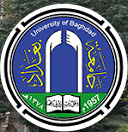Abstract
According to Qur'anic scholars Abū Ishāq Ibrāhīm ibn Saiyyār Baṣary, commonly known as Naẓẓām, the great Muʿtazila theologian is the first person to formulate and develop the theory of Ṣarfa about the miraculous aspects of Qur'an. Contemplation and focus on the biography of Naẓẓām Baṣary, as well as the historical, social and geographical conditions of Baṣra, his hometown, opens a new chapter in understanding the active factors in the formation of the theory of Ṣarfa. The results of the paper confirm the Communication of Naẓẓām with Hindu Brahma and the widespread presence of Hindus in Baṣra in the ninth century further reinforces the possibility that Ṣarfa is retrieved from Indian Braham's thought, found in the book al-fida. His encounter with philosophers and the emergence of philosophical thought in his theological perspective, on the one hand, and the dominance of philosophical thought in Baṣra, suggests that the theory of Ṣarfa is influenced by philosophical thought. Moreover, the coincidence of Naẓẓām's life as a proponent of Qur'an's creation with a significant amount of challenges on the idea of the Greatness of Qur'an, reinforced the effectiveness of the theory on Ṣarfa on the idea of the Greatness of Qur'an.
Article Type
Article
First Page
475
Last Page
487
Publication Date
6-15-2022
Creative Commons License

This work is licensed under a Creative Commons Attribution 4.0 International License.
Recommended Citation
Pichan, Mahdi and Ahmadnezhad, Amir
(2022)
"The Role of Baṣra and the Personality Indexes of Naẓẓām Baṣary in the Formation of the Theory of Ṣarfa,"
Alustath Journal for Human and Social Sciences: Vol. 61:
Iss.
2, Article 27.
DOI: 10.36473/ujhss.v61i2.1303
Available at:
https://alustath.researchcommons.org/journal/vol61/iss2/27










